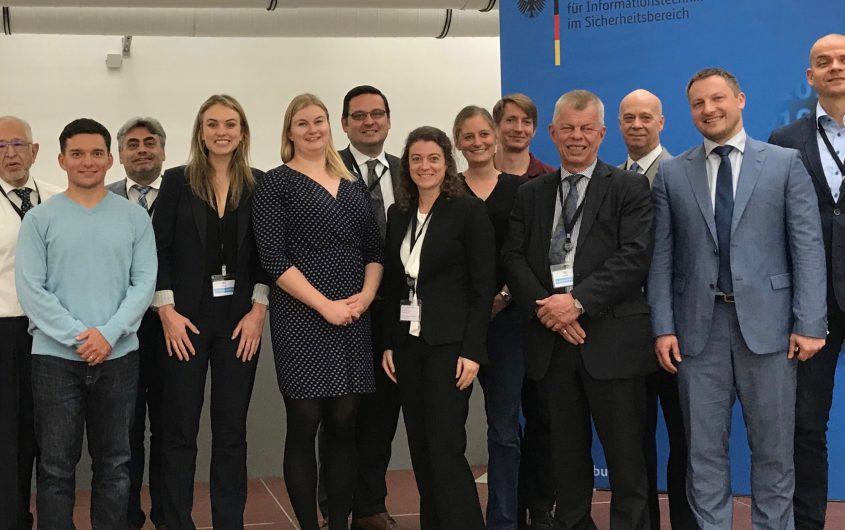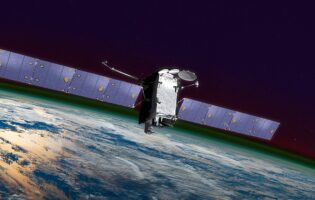AGI News
New Project to Strengthen the German-American Relationship Up for Vote in NATO

Courtesy Sarah Lohmann

Sarah Lohmann
Dr. Sarah Lohmann is Non-Resident Fellow with the American-German Institute. Dr. Lohmann is an Acting Assistant Professor in the Henry M. Jackson School for International Studies and a Visiting Professor at the U.S. Army War College. Her current teaching and research focus is on cyber and energy security and NATO policy, and she is currently a co-lead for a NATO project on “Energy Security in an Era of Hybrid Warfare”. She joins the Jackson School from UW’s Communications Leadership faculty, where she teaches on emerging technology, big data and disinformation. Previously, she served as the Senior Cyber Fellow with the American Institute for Contemporary German Studies at Johns Hopkins University, where she managed projects which aimed to increase agreement between Germany and the United States on improving cybersecurity and creating cybernorms.
Starting in 2010, Dr. Lohmann served as a university instructor at the Universität der Bundeswehr in Munich, where she taught cybersecurity policy, international human rights, and political science. She achieved her doctorate in political science there in 2013, when she became a senior researcher working for the political science department.
Prior to her tenure at the Universität der Bundeswehr, Dr. Lohmann was a press spokeswoman for the U.S. Department of State for human rights as well as for the Bureau of Near Eastern Affairs (MEPI). Before her government service, she was a journalist and Fulbright scholar. She has been published in multiple books, including a handbook on digital transformation, Redesigning Organizations: Concepts for the Connected Society (Springer, 2020), and has written over a thousand articles in international press outlets.
Over 50 academics and cyber and energy experts from across NATO and Partnership for Peace countries gathered in Washington, DC, on September 24 and 25 for a third workshop on Energy Security in the Era of Hybrid Warfare. The group aims to collaborate to produce research to protect the energy grid from cyberattacks and secure energy infrastructure from new threats emerging from the Internet of Things (IoT) and Smart System environment in the energy sector.
The project was launched with a meeting at NATO headquarters in Brussels in March, and is co-organized by Virginia Tech’s Arnold Dupuy, AGI Senior Cyber Fellow Sarah Lohmann, and the Naval Postgraduate School’s Daniel Nussbaum. The two-day workshop, which included keynotes by the chair of the NATO Energy Planning Group Mark Prouse (UK); Assistant Secretary of the Army for Installations, Energy and the Environment, Hon. Alex Beehler (U.S.); and Dr. Andreas Attenberger of ZITiS (Central Office for Information Technology in the Security Sphere, Germany), was held in the Washington, DC, office of the Pacific Northwest National Laboratory. The intensive two-day session served to help narrow division of labor and the focus of the products to be produced as a result of the research examining: the risks and vulnerabilities to the infrastructure, energy data modeling, and countermeasures.
The Washington, DC, session built on gains made in German-American cooperation at the Munich workshop held at ZITiS in May. Participants from Germany, a key NATO ally providing a critical security component to the Atlantic Alliance, placed an emphasis on strengthening cyber defense. Keynotes included Dr. Patrick Jungkunz of the German Defense Ministry and Professor Gabi Dreo-Rodosek, Director of the cyber defense research center CODE. They placed an emphasis on new technologies, big data and artificial intelligence, and a whole of government approach. The focus was on greater allied cooperation, and the value of maintaining deeply seated international norms in combating the threats to the energy sector emanating from hybrid warfare. Should a NATO Committee approve the group’s research proposal this week, the researchers from across the Alliance, which include four NATO Centers of Excellence, aim to collaborate on the project through 2022.








